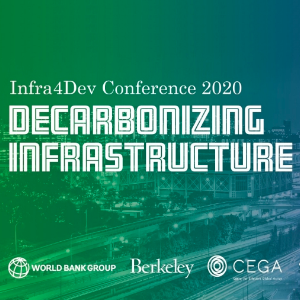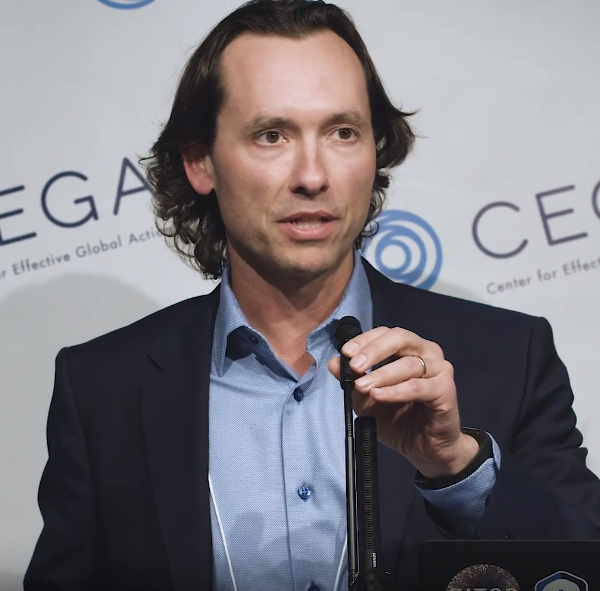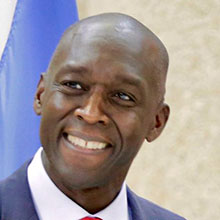Infra4Dev Conference 2020: Decarbonizing Infrastructure

This event was part of CEGA’s 2020 Evidence to Action (E2A) Series, showcasing research on climate change, the environment, and global poverty.
Jointly organized by the World Bank’s Infrastructure Vice Presidency and the University of California, Berkeley, the second annual #Infra4Dev conference, “Decarbonizing Infrastructure,” aims to explore the ways in which investments in and regulation of infrastructure are helping to mitigate the long-term effects of climate change, especially for those living in poverty in low- and middle-income countries. Through a series of talks and panels focusing on energy, transport and digital systems, they surveyed the current policy debate on these topics and highlight opportunities for new collaborative research.
Infra4Dev took place virtually on Wednesday, November 18, 2020, as part of CEGA’s 2020 Evidence to Action (E2A) Series, “Climate Change and the Global South”. The conference featured opening remarks by Makhtar Diop, World Bank Vice President for Infrastructure, and Ted Miguel, CEGA Faculty Director at UC Berkeley, as well as plenaries with high-level experts, researchers and policymakers. Michael Grubb, Professor of Energy and Climate Change at University College London, and Catherine Wolfram, Professor of Business Administration at UC Berkeley, delivered the keynote addresses.
Other events in CEGA’s E2A series included Evidence to Action 2020: Climate Change and the Global South (Nov 16th), and Disaster and Displacement: Inequalities in Climate Migration (Dec 11th, with the Berkeley Interdisciplinary Migration Initiative and the Human Rights Center).















